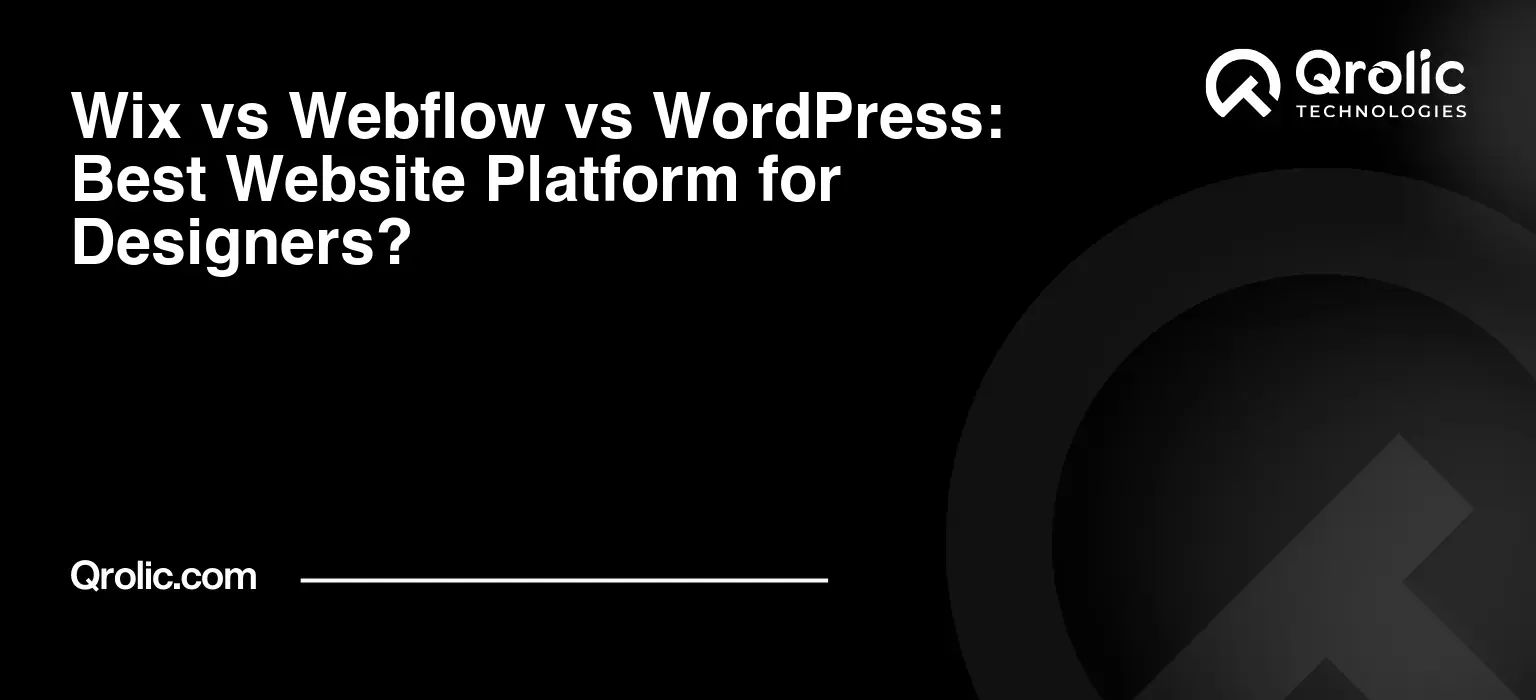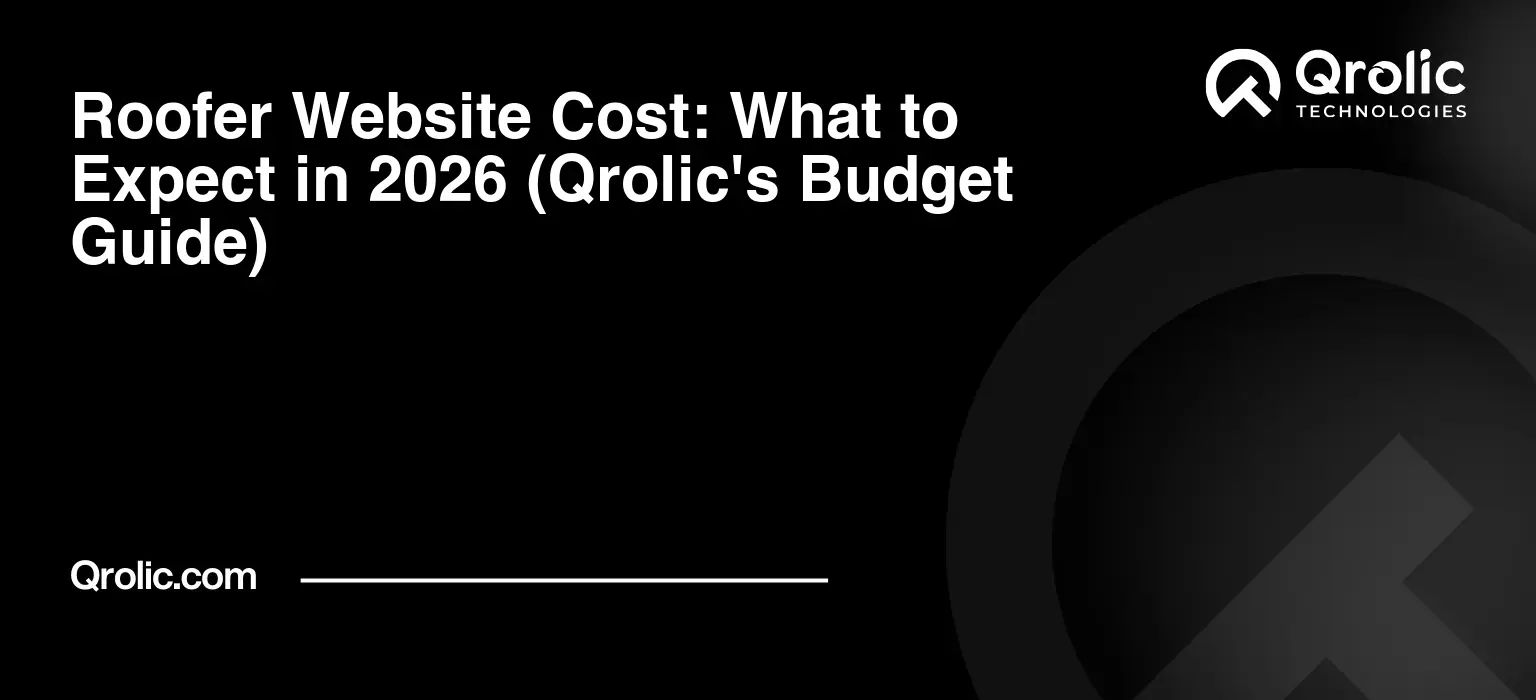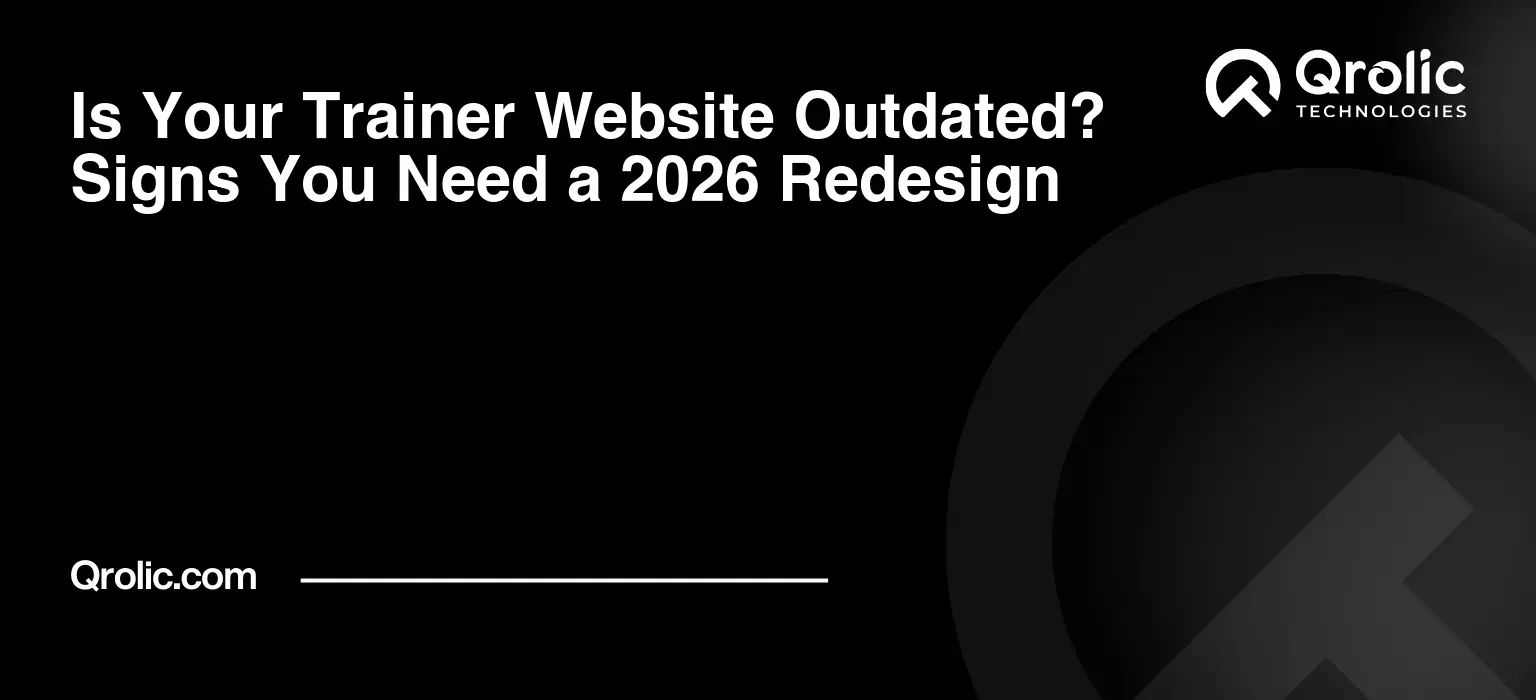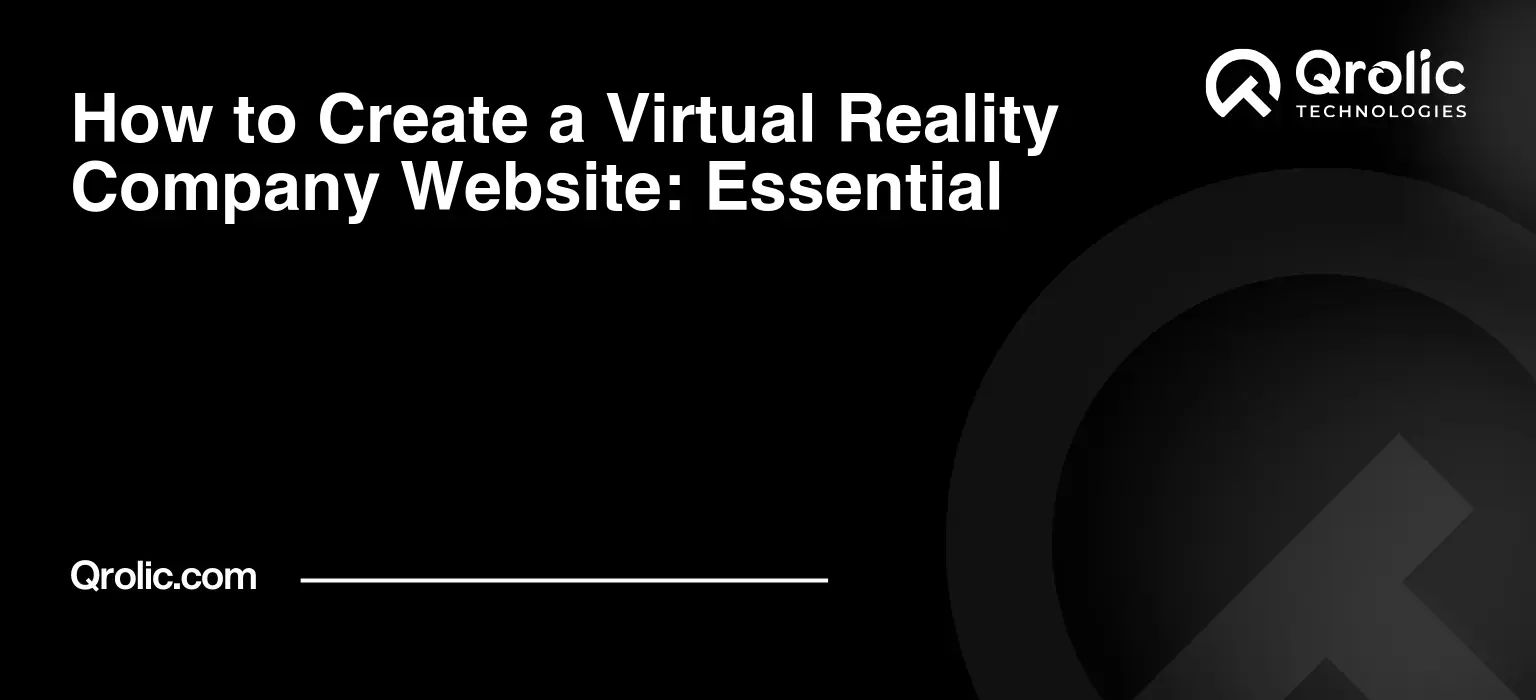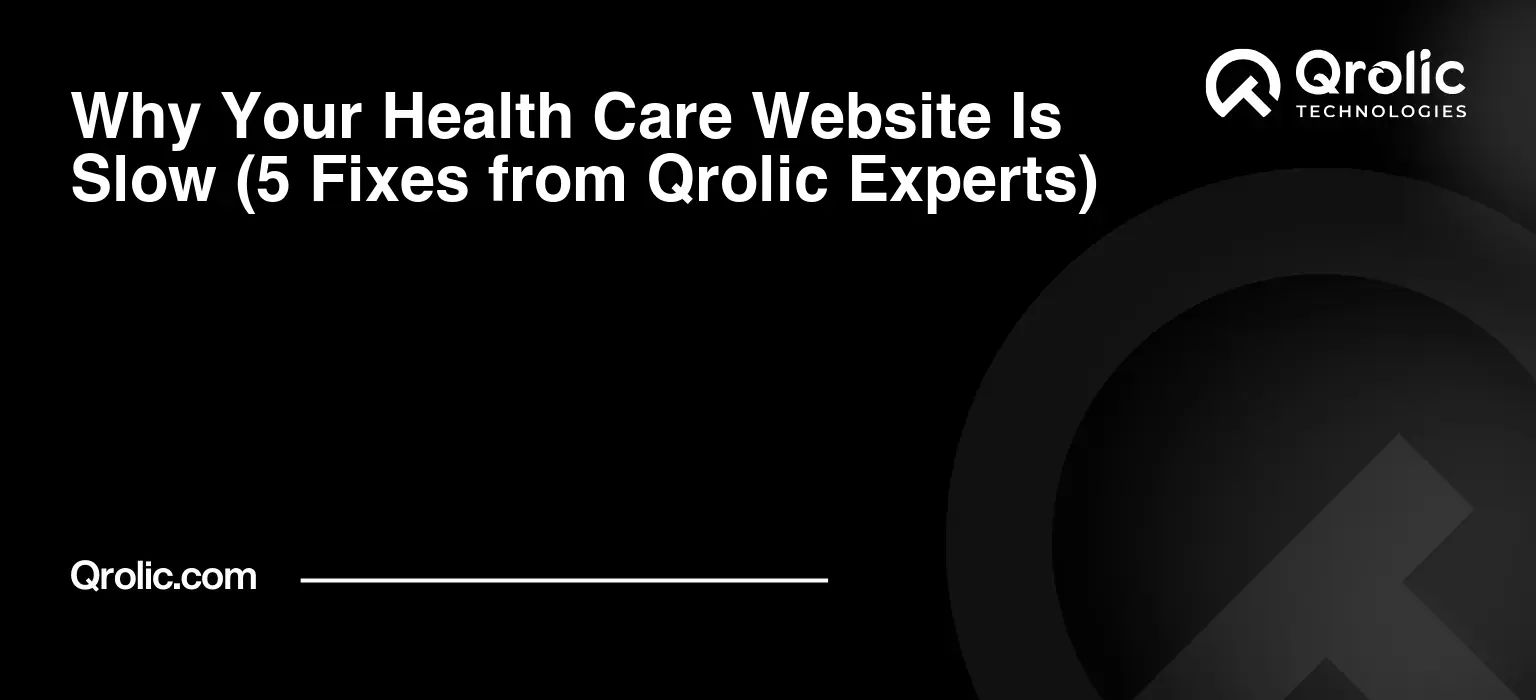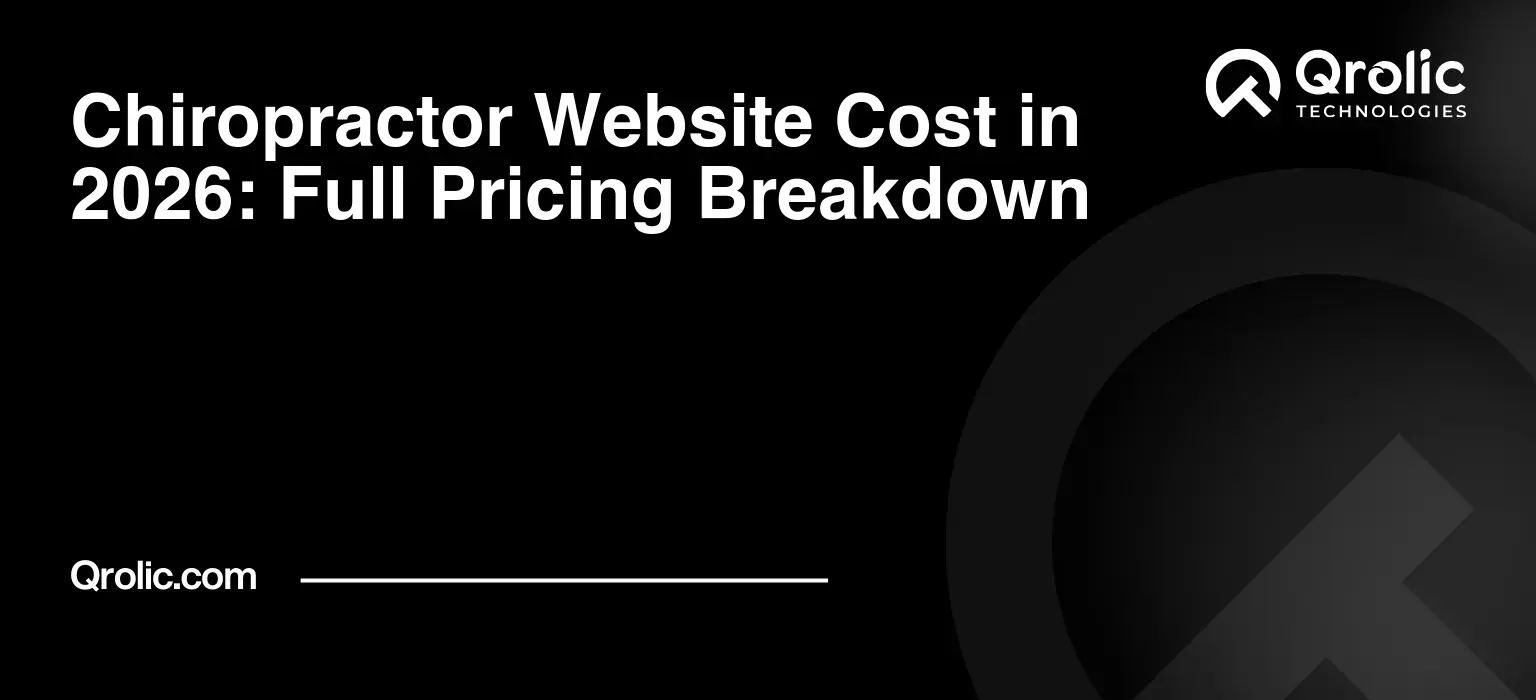Quick Summary:
- Wix is best for easy, quick visual design.
- Webflow offers pixel-perfect control for pros.
- WordPress gives ultimate flexibility for complex sites.
- Try them all to find your perfect design tool.
Table of Contents
- 1. Introduction to Wix, Webflow, and WordPress
- Wix
- Webflow
- WordPress
- 2. Ease of Use: Who Wins for Beginners?
- Wix
- Webflow
- WordPress
- 3. Customization and Flexibility
- Wix
- Webflow
- WordPress
- 4. Design and Visual Control
- Wix
- Webflow
- WordPress
- 5. Performance and SEO
- Wix
- Webflow
- WordPress
- 6. E-commerce Capabilities
- Wix
- Webflow
- WordPress
- 7. Scalability and Long-Term Growth
- Wix
- Webflow
- WordPress
- 8. Security and Maintenance
- Wix
- Webflow
- WordPress
- 9. Support and Community
- Wix
- Webflow
- WordPress
- 10. Use Case Scenarios
- Wix
- Webflow
- WordPress
- 11. Why Businesses Choose WordPress
- 12. How Qrolic Technologies Can Help You Build a Powerful WordPress Website
- 13. Conclusion
1. Introduction to Wix, Webflow, and WordPress
Wix
Wix is a drag-and-drop website builder known for its simplicity. It’s ideal for users without coding experience who want a website quickly. Wix offers hundreds of templates, built-in hosting, and a user-friendly interface, making it accessible to small businesses, freelancers, and bloggers.
Webflow
Webflow is a visual web design platform that combines design flexibility with code-level customization. It targets designers and developers who want pixel-perfect websites without fully coding everything from scratch. Webflow also offers CMS and e-commerce capabilities, bridging the gap between Wix’s simplicity and WordPress’s power.
WordPress
WordPress is the world’s most popular CMS, powering over 40% of all websites globally. It’s an open-source platform that provides unlimited flexibility, extensive plugins, and themes. WordPress is suitable for any website type—from blogs to large-scale e-commerce stores and enterprise-level solutions.
2. Ease of Use: Who Wins for Beginners?
Wix
- Pros: Extremely beginner-friendly, intuitive drag-and-drop interface, ready-made templates.
- Cons: Limited flexibility; once a template is chosen, switching is difficult.
Webflow
- Pros: Visual interface with advanced design control; great for designers.
- Cons: Steeper learning curve; may require understanding of CSS and HTML concepts.
WordPress
- Pros: Beginner-friendly with page builders like Elementor or Divi.
- Cons: Requires some learning for backend management, plugin installation, and hosting setup.
Winner for Beginners: Wix is the simplest, but WordPress becomes easier with page builders.
Ready to Build Your Next Project?
Let’s turn your ideas into a powerful digital solution. Contact us today to get started with expert web development and design services.
3. Customization and Flexibility
Wix
- Limited customization beyond templates and built-in widgets.
- Good for simple websites, blogs, and small online stores.
Webflow
- Excellent for custom layouts and animations.
- Offers CSS and JavaScript customization for advanced users.
WordPress
- Unlimited customization possibilities with themes, plugins, and custom coding.
- Suitable for complex websites, membership sites, large blogs, or enterprise portals.
Winner for Flexibility: WordPress
4. Design and Visual Control
Wix
- Hundreds of templates, but limited control over layout flexibility.
- Drag-and-drop editor is intuitive but may feel restrictive for advanced design needs.
Webflow
- Allows full control over every visual element, making it ideal for designers.
- Supports advanced animations, responsive design, and custom CSS.
WordPress
- Offers thousands of themes and page builders like Elementor and Divi for complete design freedom.
- Best suited for users who want a custom professional look without coding everything from scratch.
Winner for Design Control: Webflow for precision, WordPress for scalability
Ready to Build Your Next Project?
Let’s turn your ideas into a powerful digital solution. Contact us today to get started with expert web development and design services.
5. Performance and SEO
Wix
- Good for basic SEO needs with built-in SEO tools.
- Performance can suffer if too many elements are added.
Webflow
- Clean code and fast-loading pages; SEO-friendly with meta tag management and schema support.
WordPress
- Extremely SEO-friendly using plugins like Yoast SEO or Rank Math.
- Optimizable for speed through caching, CDN, and code optimization.
Winner for SEO: WordPress, due to unmatched optimization capabilities
6. E-commerce Capabilities
Wix
- Wix Stores for small online shops; limited scalability.
- Best for small business e-commerce sites.
Webflow
- Webflow E-commerce for boutique or design-heavy stores.
- Flexible product management, but may require custom integrations.
WordPress
- WooCommerce plugin provides enterprise-level e-commerce functionality.
- Handles high traffic, multiple payment gateways, subscriptions, and complex product catalogs.
Winner for E-commerce: WordPress
7. Scalability and Long-Term Growth
Wix
- Not ideal for large, complex websites.
- Best for small sites with limited expansion needs.
Webflow
- Moderate scalability; better suited for design-focused, medium-sized projects.
WordPress
- Highly scalable; supports enterprise websites, high traffic, and complex custom features.
Winner for Scalability: WordPress
8. Security and Maintenance
Wix
- Security handled by Wix, including updates and hosting.
- Minimal user responsibility.
Webflow
- Secure hosting included, but advanced users may need extra security measures for custom integrations.
WordPress
- Requires regular updates of themes, plugins, and core software.
- Security depends on hosting provider, plugins, and best practices.
Winner for Security Ease: Wix (WordPress can be equally secure with the right setup)
9. Support and Community
Wix
- 24/7 support, help center, and tutorials.
Webflow
- Limited direct support; strong online community and tutorials.
WordPress
- Massive community, extensive forums, documentation, and professional agencies for support.
Winner for Support: WordPress
10. Use Case Scenarios
Wix
- Small businesses, personal blogs, portfolios, simple e-commerce.
Webflow
- Designers, agencies, small-to-medium e-commerce, projects requiring custom design.
WordPress
- Large businesses, complex websites, e-commerce, high traffic blogs, memberships, SaaS platforms.
11. Why Businesses Choose WordPress
- Flexibility: Build anything from blogs to enterprise platforms.
- Scalability: Handles high traffic and complex functionalities.
- SEO-Friendly: Optimized for search engines with plugins and technical customization.
- Design Freedom: Thousands of themes and powerful page builders.
- Community & Support: Extensive network of developers, designers, and agencies.
12. How Qrolic Technologies Can Help You Build a Powerful WordPress Website
Qrolic Technologies is an exclusive WordPress agency helping businesses overcome website challenges. If your WordPress site is slow, complex, or hard to scale, Qrolic provides:
- Custom Development: Turning messy code into optimized, maintainable solutions.
- Performance Optimization: From 30 seconds to 4 seconds load time improvements.
- E-commerce Solutions: Tailored WooCommerce stores with advanced analytics.
- High-Traffic Handling: Ensure your website stays stable during peak events.
- Ongoing Support: Transparent communication, reporting, and long-term partnership.
With Qrolic, you don’t just get a website—you get a solution that grows your business, ensuring WordPress works efficiently, securely, and scalably.
13. Conclusion
Choosing between Wix, Webflow, and WordPress depends on your needs:
- Wix for simplicity and speed.
- Webflow for designer-focused projects with moderate complexity.
- WordPress for flexibility, scalability, and enterprise-level functionality.
For businesses aiming for long-term growth, WordPress coupled with a professional agency like Qrolic Technologies provides unmatched performance, customization, and peace of mind. Whether you’re starting a blog, building an e-commerce store, or managing a high-traffic enterprise website, WordPress offers the control, scalability, and SEO advantages necessary to succeed.
Start your website journey today, and make the platform work for you—not the other way around
